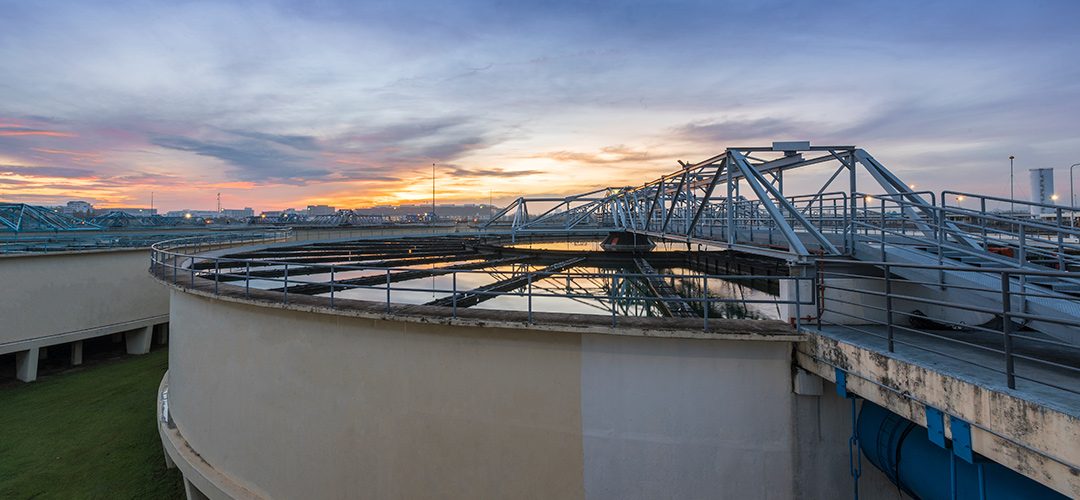Rare earth chemistry produces less sludge than traditional methods. In addition, it removes phosphorus more effectively. The approach is safer and can save significant money for your wastewater treatment plant.
Wastewater treatment facilities face multiple challenges. High on the priority list for most is cost effectively separating solids from water, which can require the addition of coagulants. That can increase costs and generate significant amounts of sludge for disposal.
Rare earth chemistry offers an effective solution to solids separation while simultaneously reducing sludge production. Compared to traditional iron- or aluminum-based coagulants, rare earth compounds can efficiently remove solids through improved settling, while also minimizing sludge volume and reducing phosphorus to extremely low concentrations. All of this improves the performance of filter presses and reduces the overall cost of managing biosolids.
Rare Earth Technology: A Different Approach
For decades, iron-based and aluminum-based chemicals have been the preferred chemical methods for reducing phosphorus in wastewater treatment plants. Even though those products are still considered ¸’tried-and-true’ solutions, they also can introduce other problems for plant operators. For example, recent studies show that larger amounts of iron or aluminum are needed when phosphate concentrations are low; as the absorption process is less efficient at lower levels. When iron or aluminum salts are used, a metal hydroxide is formed and phosphate is attracted to the surface, however, aluminum can act as a dispersant, which suspends particles. Therefore, excess coagulant added to remove phosphate can result in increased suspended solids.
Ironically, while iron- or aluminum-based coagulant solutions can appear less expensive on the front end, they can drive up the amount of produced sludge and increase other system costs.
In contrast, rare earth chemistry offers a straightforward metal-phosphate precipitation. Rare earth compounds combine with phosphate to form the mineral rhabdophane, which is a highly stable mineral found in nature. It is a more compact solid that can be more easily separated and dewatered.
Lower Dosing Needed, Less Sludge, Better Coagulation
Rare earth-based coagulants can achieve superior results in phosphorus reduction with lower dosing. This is because rare earths naturally bond to phosphorus with a lower molecular ratio of metal to phosphate. As a result, rare -earth coagulants deliver extremely low phosphorus concentration levels at lower dosing ratios than iron- and aluminum-based coagulants.
Reduced sludge volumes are also a key benefit of rare earth-based coagulant. In field trials at a wastewater treatment plant, Neo Water Treatment’s rare-earth product reduced P concentrations from 0.8 mg/L to .06mg/L while also producing an estimated 51 percent less sludge than an iron-based coagulant, and 34 percent less sludge than an aluminum-based coagulant. The estimated amount of sludge produced was 8.1 mg sludge/L of solution per mg/L of P removed.
Less Sludge Saves Hauling Costs
Less sludge production means less hauling and disposal costs. For example, a 770,000 GPD wastewater treatment plant began using rare earth technology in 2014 in order to meet permit discharge limits for aluminum and phosphorus. Previously, the plant hauled away sludge to a landfill in 20-yard dumpsters. The sludge was only about 15 percent solids, and the facility’s belt filter press ran eight hours daily, five days a week. The introduction of rare earth technology increased the solids content of produced sludge to roughly 21 percent. That eliminated the facility’s need for a gravity thickener prior to the belt filter press.
Today, this plant runs its belt filter press only eight hours once a week — an 80 percent reduction. That change produced significant savings in power costs. But it also drove much larger savings in hauling and disposal costs. The plant was able to reduce its sludge shipments from 75 to 31 containers annually, saving $70,000 per year in transport and disposal costs.
Low Toxicity
Toxicity tests of the wastewater sludge produced from rare earth technology measured than the regulatory limit for toxins in drinking water. Rare earth solids — which are themselves non-toxic — are removed through a solids/liquid separation system, such as a clarifier or filter.
Rare earth coagulants also have been shown to not inhibit sludge respiration through activated sludge microbes. Further, a study was performed on corn grown with commercial fertilizer, corn grown with ferric treated waste sludge and corn grown with rare-earth treated sludge. The study found that the application of rare earth biosolids is not expected to affect the growth and yield of corn when applied at normal rates that supply the corn N requirement. Phosphorus concentrations in the soil after the test indicate that phosphorus uptake in the corn was greatest in the fertilized sample, and worst in the sample grown with ferric treated sludge. Phosphorus availability in the sludge treated with rare-earth appears to be between commercial fertilizer and ferric treated sludge. Furthermore, the lack of significantly higher rare earth concentrations in the plant material in all cases is an indication that the rare earths are not bioavailable. Thus, the application of rare earth biosolids at normal rates is not expected to increase the content of rare earths found in corn beyond what is naturally present nor is it expected to hinder the yield of corn grown.
Rare Earth Chemistry – A Big Leap Forward in Wastewater Treatment
Rare earth chemistry offers a leap forward in wastewater treatment. A rare earth product such as Neo WaterFX300 (formerly RE300) by Neo Water Treatment offers more effective water removal from sludge, which can reduce both power consumption and hauling costs. Neo WaterFX300 (formerly RE300) also is more efficient at removing phosphorus. Toxicity tests also show that rare earth technology is a safe and non-toxic.
In short, rare earth chemistry helps solve multiple problems at lower overall costs. Now, that’s progress.
For more information on how you can improve your wastewater plant’s operation, contact Neo Water Treatment at (303) 843-8065; or email us here.
Signup for occasional email updates at https://neowatertreatment.com/contact/get-updates/.



